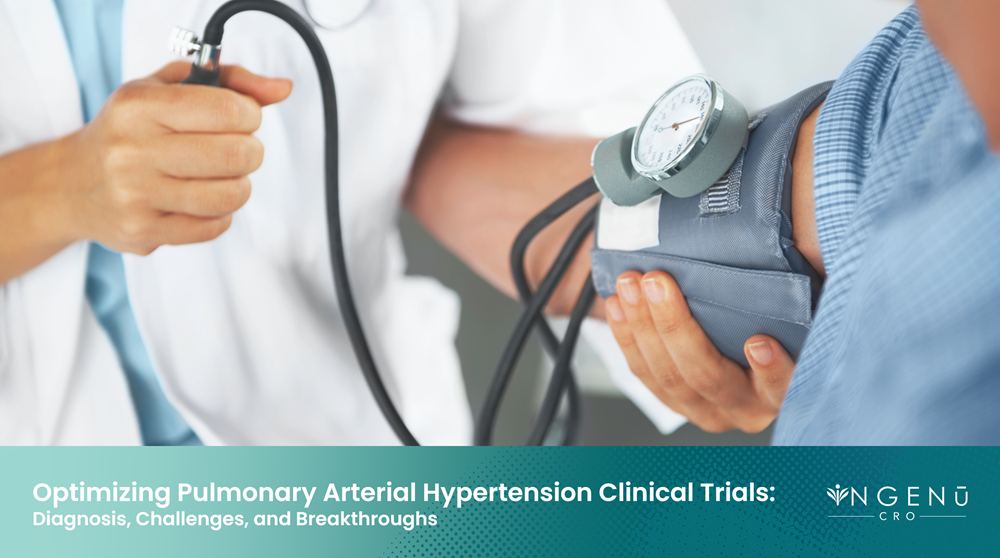Download our whitepaper,
"Optimizing Pulmonary Arterial Hypertension Clinical Trials: Diagnosis, Challenges, and Breakthroughs "

What's Inside:
- Key FDA-Approved Pivotal Endpoints for Pulmonary Arterial Hypertension Clinical Trials.
- Optimizing Recruitment with Adaptive Trial Designs for Pulmonary Arterial Hypertension.
- Comprehensive Analysis of FDA-Approved Pulmonary Arterial Hypertension Drugs.
- How Diagnostic Criteria for Pulmonary Arterial Hypertension Have Evolved and Impact Research.
- Overcoming Common Pitfalls in Pulmonary Arterial Hypertension Clinical Trials.
- And additional insights to drive your trial's success.
Access your complimentary whitepaper today:
Pulmonary Arterial Hypertension
Pulmonary Arterial Hypertension (PAH) is a rare but life-threatening condition characterized by elevated blood pressure in the pulmonary arteries, which connect the heart to the lungs.
The increased pressure results from the narrowing and stiffening of these arteries, leading to restricted blood flow. As a consequence, the right side of the heart has to work harder to pump blood through the lungs. Over time, this extra strain can cause right heart failure, a primary cause of death in patients with PAH. If left untreated, PAH can be fatal within a few years of diagnosis.
iNGENū’s team of researchers and clinicians is dedicated to advancing Pulmonary Arterial Hypertension research. Through innovative trial designs and a patient-centered approach, we work to accelerate the development of new treatments that could offer improved options and outcomes for those affected by Pulmonary Arterial Hypertension.
Women are
3x
more likely to develop PAH
40%
of patients with untreated PAH develop right heart failure
10%
of PAH cases are heritable, often involving mutations in the BMPR2 gene.
Our clinical team has over
120
years of combined clinical trial experience